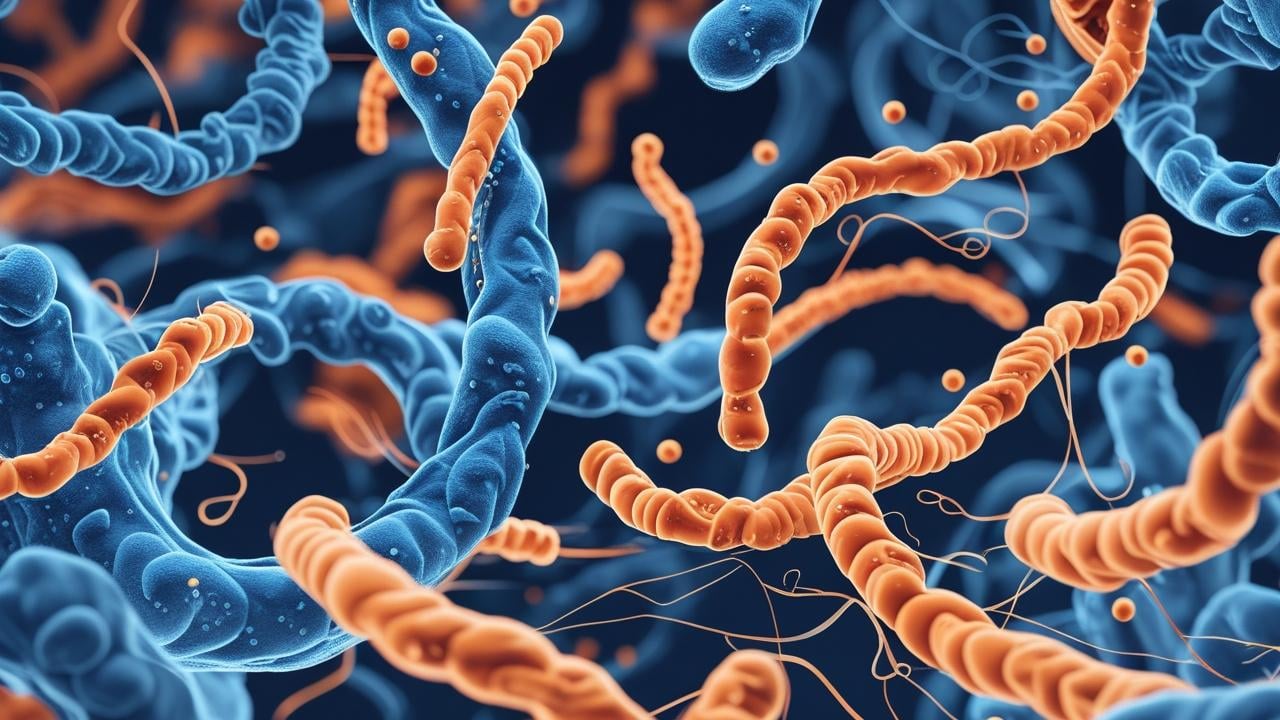1. Your microbiome may weigh around 2 kilograms
That gut microbe community isn't just vast—it has substance. There are approximately 100 trillion microbes in your gut, across as many as 5,000 species, collectively weighing about 2 kg—roughly the weight of a large paperback novel on your system!
2. Your microbiome may act like a fingerprint
Just as no two fingerprints are identical, your gut microbiome is uniquely yours. While humans share many of the same microbial species, the exact combination, abundance, and strain variations differ from person to person. This individuality can persist for years, making your microbiome a kind of biological ID card. It also explains why certain diets, probiotics, or treatments work well for some people but not others.
3. Modern sequencing unlocked hidden microbial worlds
Before the mid-2000s, microbiome research was limited to culturing microbes in the lab—a method that could only capture a fraction of gut species, since most can’t survive outside the anaerobic environment of the intestines. That meant we were effectively blind to the majority of our microbial partners. The arrival of next-generation sequencing (NGS), and later metagenomics, changed everything. Now, scientists can identify microbes directly from DNA in stool samples, including rare and previously unknown species. This has opened the door to discovering new health associations, tracking microbiome shifts over time, and developing precision tools—like the GutID test—that can detect and classify microbes down to the strain level.
4. Microbes help train your immune system
From infancy, gut microbes act as instructors for your immune system, teaching it to distinguish between harmless substances and real threats. This training helps prevent overreactions that can lead to allergies or autoimmune conditions. A diverse microbiome is especially important—reduced microbial exposure in early life has been linked to higher rates of asthma, eczema, and other immune-related disorders.
5. Your microbiome influences your mood and behavior
Emerging research shows a strong connection between gut microbes and the brain, known as the gut-brain axis. Gut bacteria produce neurotransmitters like serotonin and GABA, which can affect mood, anxiety, and cognitive function. This means your gut health may play a bigger role in mental wellness than previously thought.
6. Your microbiome starts before birth—maybe
Once thought sterile before birth, the gut may begin colonizing in utero, as suggested by the presence of microbes in meconium. After birth, factors like delivery method and feeding (breast vs. formula) shape your microbiome’s development until it stabilizes around ages 2–3.
7. Antibiotics early in life can have long-term effects
When used during infancy or childhood, antibiotics can shift your gut's bacterial profile toward one linked to obesity, metabolic dysfunction, or autoimmune issues—similar to how low-dose antibiotics promote growth in livestock.
8. Even “normal” microbiomes include potentially harmful bacteria
Microbiome is not synonymous with “good.” It commonly includes species like E. coli and Enterococci, blurring the line between beneficial and pathogenic.
9. Gut microbes are biochemical powerhouses
They harvest energy from food, produce vital nutrients like vitamin K, manufacture neurotransmitters such as serotonin, and help balance your immune system and metabolism.
10. Industrial lifestyles may be shrinking microbiome diversity
People in Western, urban environments tend to have less diverse gut microbiomes, likely due to processed diets and less environmental exposure—while factors like growing up with pets seem to support healthier, more varied microbial communities, potentially reducing allergy risks.
Why These Insights Matter
- Your gut is a major metabolic organ. It's not just microbes—it’s a living ecosystem affecting digestion, immunity, and mood.
- Early life matters. What happens before age 3 can shape lifelong health.
- Balance, not purity. Even "normal" microbiomes include microbes with dual roles.
- Exposure boosts resilience. A more varied microbiome may help shield us from modern health issues.
Call to Action: Nurturing Your Microbiome
- Diversify your diet—especially with fiber and fermented foods to support microbial balance.
- Use antibiotics wisely—preserve microbial resilience when possible.
- Embrace varied environments—natural exposures (like pets or outdoor play) may promote better gut diversity.
Final Thoughts
The gut microbiome is one of the most fascinating frontiers of human biology—once hidden microbial masses are now being recognized as key players in our health. The Ferranti et al. article lays a powerful foundation of understanding.
But true empowerment comes when that knowledge meets precision and personalization. That’s what GutID delivers—bringing advanced, actionable microbiome insights to your doorstep, helping transform uncertainty into clarity, and health into action.
About the Source
All these points are distilled from “20 Things You Didn’t Know About the Human Gut Microbiome” (J Cardiovasc Nurs, 2014;29(6):479–81) by Ferranti et al., available via PubMed Central (PMCID: PMC4191858)


Share:
How to Choose the Right Probiotics, Prebiotics & Supplements for Gut Health
5 Simple Gut Wellness Tips to Add to Your Routine: Gut Health Tips